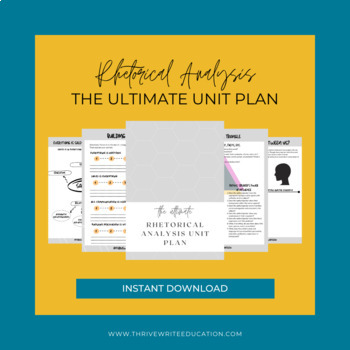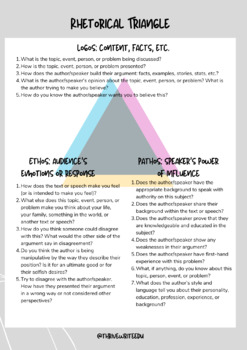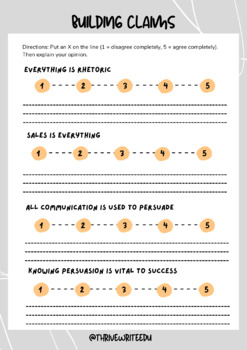The Ultimate Rhetorical Analysis Unit Plan
- PDF
Description
10 Rhetorical Analysis lessons to pick and choose from. A variety of ways to teach rhetoric that are focused on student engagement.
Rhetoric is one of the most difficult subjects to learn and can be even more difficult to teach. It is difficult because there is not one answer, one process, or one way to teach it. People who are good at analyzing rhetoric oftentimes are "just good at it." They don't know why they are good and they don't know how to share what they know.
Rhetoric is also a difficult subject to teach in just one lesson, so I teach different concepts or facets of rhetoric throughout the unit. I have simplified the concepts so that high school general education students can have conversations about it. I believe that they will go into the details and variables in college, but in high school, they are capable of discussing at a more simplified level.
Depending on the needs of the students or class, I will pick from a variety of these lessons. They aren't given in any particular order, as I will ask them to begin the Rhetorical Analysis Packet before they fully understand what rhetoric is so they can be introduce to the types of questions we will be searching for the answers to.
My main objective in many of these lessons is to get them excited and talking about it within pairs and small groups. Try to bring in as many examples as you can. Also, it's important to be politically and morally unbiased. If you are sharing your opinion about a politician or issue presenting only one side of the issue, you are using your rhetoric, or ethos/credibility as a teacher, to persuade them rather than to let them make their own decision.





